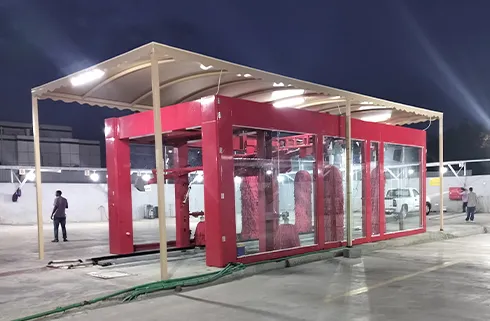
- Afrikaans
- Albanian
- Amharic
- Arabic
- Armenian
- Azerbaijani
- Basque
- Belarusian
- Bengali
- Bosnian
- Bulgarian
- Catalan
- Cebuano
- Corsican
- Croatian
- Czech
- Danish
- Dutch
- English
- Esperanto
- Estonian
- Finnish
- French
- Frisian
- Galician
- Georgian
- German
- Greek
- Gujarati
- Haitian Creole
- hausa
- hawaiian
- Hebrew
- Hindi
- Miao
- Hungarian
- Icelandic
- igbo
- Indonesian
- irish
- Italian
- Japanese
- Javanese
- Kannada
- kazakh
- Khmer
- Rwandese
- Korean
- Kurdish
- Kyrgyz
- Lao
- Latin
- Latvian
- Lithuanian
- Luxembourgish
- Macedonian
- Malgashi
- Malay
- Malayalam
- Maltese
- Maori
- Marathi
- Mongolian
- Myanmar
- Nepali
- Norwegian
- Norwegian
- Occitan
- Pashto
- Persian
- Polish
- Portuguese
- Punjabi
- Romanian
- Russian
- Samoan
- Scottish Gaelic
- Serbian
- Sesotho
- Shona
- Sindhi
- Sinhala
- Slovak
- Slovenian
- Somali
- Spanish
- Sundanese
- Swahili
- Swedish
- Tagalog
- Tajik
- Tamil
- Tatar
- Telugu
- Thai
- Turkish
- Turkmen
- Ukrainian
- Urdu
- Uighur
- Uzbek
- Vietnamese
- Welsh
- Bantu
- Yiddish
- Yoruba
Effective Car Wash Solutions Powered by Advanced Battery Technology
The Future of Car Wash Machines The Role of Battery Technology
In recent years, the automobile industry has witnessed a significant transformation, not just in vehicle manufacturing but also in the ancillary services that support vehicle maintenance, such as car washing. As electric vehicles (EVs) gain popularity, the demand for innovative solutions in the car wash segment is also on the rise. Among these solutions, the integration of battery-powered car wash machines is emerging as a game-changer.
The Need for Battery-Powered Car Wash Machines
Traditional car wash operations often rely on high-capacity machinery that requires a constant supply of electricity. This not only increases operational costs but can also pose challenges in urban settings where access to power sources may be limited. Moreover, with increasing awareness of environmental issues, there is a pressing need for cleaner, more efficient washing methods that do not compromise on performance. Battery-powered car wash machines present a viable solution by offering increased flexibility, lower energy consumption, and reduced emissions.
Efficiency and Performance
Battery technology has advanced significantly in recent years, resulting in machines that can operate for extended periods on a single charge. High-capacity lithium-ion batteries, for example, have proven to be durable and efficient, providing the necessary power to operate various washing mechanisms, including high-pressure jets, brushes, and drying systems. Modern battery-powered car wash machines can efficiently clean vehicles without relying on continuous external power, making them an ideal option for mobile car wash services or locations where traditional power access is challenging.
Additionally, these machines often incorporate advanced features such as smart technology and automation, allowing for optimized washing cycles that conserve water and cleaning agents. Many battery-powered wash systems can analyze dirt levels on the vehicle's surface and adjust their operations accordingly, ensuring that every wash is efficient and effective.
Environmental Benefits
car wash machine battery

One of the most compelling arguments for battery-powered car wash machines is their environmental friendliness. They typically produce fewer emissions compared to their gas or diesel counterparts. This is particularly important in urban areas where air quality is a concern. Moreover, many modern battery-powered systems use water recycling techniques, significantly reducing water wastage. By combining these eco-friendly approaches with battery technology, car wash operators can appeal to environmentally conscious consumers while simultaneously reducing operational costs.
Mobility and Versatility
Since battery-powered car wash machines do not rely on a wired power source, they offer unparalleled mobility. This is especially beneficial for on-demand car wash services that can go directly to customers’ locations. Imagine a mobile car wash unit that can travel to businesses or residential areas, providing convenience and time-saving solutions for busy customers. This level of versatility not only enhances customer satisfaction but potentially opens up new revenue streams for car wash businesses.
Challenges to Overcome
While the prospects of battery-powered car wash machines are promising, several challenges must be addressed for widespread adoption. Battery life and recharging infrastructure remain critical considerations; operators will need to ensure that machines can complete multiple washes before needing a recharge. Additionally, the initial cost of investment in advanced battery technology can be higher compared to traditional machines, posing a barrier for some businesses.
The Road Ahead
As the automotive and cleaning industries continue to evolve, the adoption of battery-powered car wash machines seems likely to grow. With ongoing advancements in battery technology, improvements in recharging infrastructure, and a rising trend towards sustainability, businesses are expected to increasingly embrace this innovation. In the future, battery-powered machines could become the standard in car cleaning, providing efficient, environmentally friendly services that meet consumer demands.
In conclusion, the integration of battery technology into car wash machines represents not just a trend, but a substantial shift towards more sustainable practices in vehicle maintenance. As consumers become more conscious of their environmental impact and as technology continues to advance, the future looks bright for battery-powered car wash machines—offering efficiency, mobility, and eco-friendliness in the pursuit of a cleaner automotive landscape.
-
Integrating Aqua Tunnel Car Wash in Shopping CentersNewsJun.24,2025
-
Gas Station with an Auto Car Wash MachineNewsJun.24,2025
-
Efficiency in Your Aqua Tunnel Car Wash: Power & Water-SavingNewsJun.24,2025
-
Car Wash Business with Advanced Auto Car Cleaning MachinesNewsJun.24,2025
-
Balancing Setup Costs with Aqua Tunnel Car WashNewsJun.24,2025
-
Aqua Tunnel Car Wash: Eco-Design for the Energy-Savvy EntrepreneurNewsJun.24,2025



